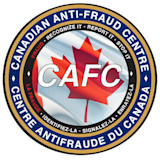
Privacy and security
The importance of strong passwords and how to create them
Learn how to create strong passwords and manage them.
Read article
Canadian Anti-Fraud Centre
www.antifraudcentre-centreantifraude.ca

The Canadian Anti-Fraud Centre (CAFC) is noticing an increase in reporting related to misleading home services and equipment. Victims are being contacted through ads on social media, telemarketing calls or through door-to-door salespersons. Ads on social media will ask for your contact information. After receiving your contact information, you will receive a telephone call asking to setup an appointment at your residence. Door-to-door salespeople can use high pressure tactics and can be aggressive in nature. Consumers may find themselves in a situation where they purchase a product or sign up for a service they neither need nor want. Beware! The services and products offered likely come with contractual obligation. The sellers will offer their services or equipment at a price that is normally below market value. They may claim that the victim is eligible for a grant through a government program and pressure the victim into signing a contract or prepaying for the equipment or services.
Reporting indicates the risks to consumers include that that quality of work or equipment often is not worth the price paid, and in some cases that warranties are invalid.
The CAFC has also received reports where victims have signed a contract and a Notice of Security Interest (NOSI) has been placed on their home.
Anyone who suspects they have been the victim of cybercrime or fraud should report it to their local police and to the Canadian Anti-Fraud Centre’s online reporting system or by phone at 1-888-495-8501.
If not a victim, you should still report the incident to the CAFC.

Learn how to create strong passwords and manage them.
Read article
The Canadian Anti-Fraud Centre would like to warn Canadians about a new variation of the bank investigator scam.
Read article
The Canadian Anti-Fraud Centre is seeing an increase in reporting where fraudsters are using deepfake technology.
Read article